Physical Address
304 North Cardinal St.
Dorchester Center, MA 02124
Physical Address
304 North Cardinal St.
Dorchester Center, MA 02124
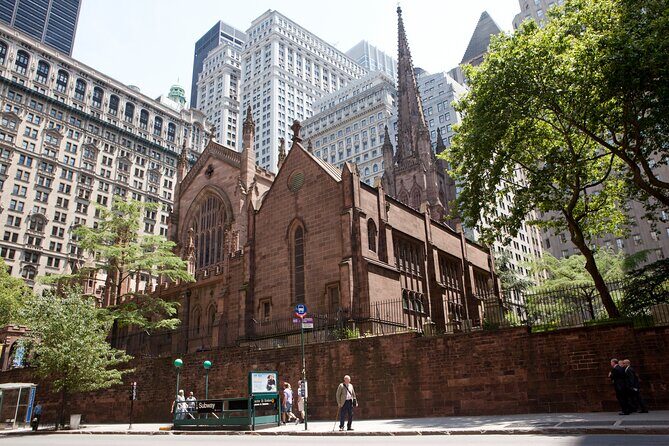
Discover New York’s hidden African American history with this private 4-hour walking tour, visiting landmarks like the African Burial Ground and historic churches.
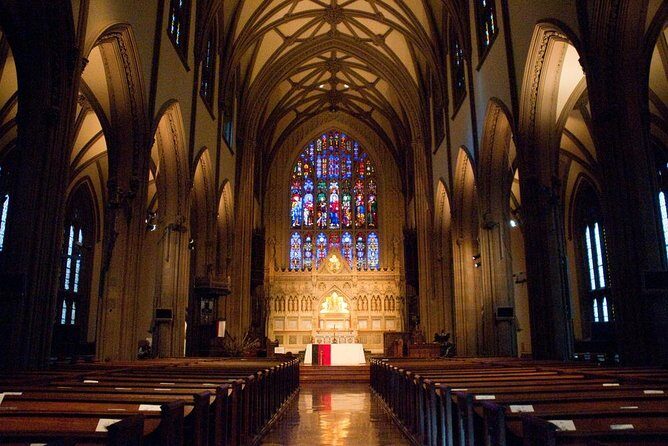
If you’re eager to go beyond the usual tourist spots and learn about the untold stories of African Americans in New York City, this private walking tour promises an eye-opening experience. Led by a knowledgeable guide from Harlem Spirituals – New York Visions, this 4-hour journey takes you through the city’s most significant yet often overlooked sites, from the roots of the slave trade to the emergence of Black communities in Lower Manhattan.
What really sets this tour apart is the personalized nature—since it’s private, you’re not just another face in a large group. Expect tailored insights, lots of room for questions, and a chance to truly connect with the history. It’s especially appealing if you prefer a slow-paced, in-depth exploration rather than a hurried overview.
However, keep in mind that public transportation to the starting point is not included, so you’ll want to plan your arrival accordingly. Also, while 4 hours is enough to cover key sites, it’s a physically moderate tour—good footwear and moderate fitness will help you enjoy it fully. If you’re passionate about history, culture, and authentic stories, this experience could be a perfect fit.
History buffs will find these New York City heritage tours enlightening
Your journey begins in the heart of the Financial District at Wall Street, but this isn’t just the stock exchange. This site was originally built by Africans to protect the early Dutch settlement. Most eye-opening is that it housed New York City’s first slave market, where Africans and Native Americans were bought, sold, and leased as day laborers. Walking past these historic stones, you’ll see how intertwined the city’s development is with slave trade history—a story often left out of standard city tours.
The guide explains how this dark chapter laid the groundwork for the city’s economic growth, offering context about how Black and Indigenous peoples contributed to New York’s prosperity from the very start.
Next, you visit Trinity Church Wall Street, where archives from 1696 reveal that the church used slave labor to build its structures. The church also conducted services for enslaved people and free Black residents, including burials in its churchyard, making it an important site for understanding the spiritual life of early Black New Yorkers. It’s also the precursor to the African Free School, establishing a legacy of education and community resilience.
The guide emphasizes that these historical connections are only now being widely recognized, and you’ll gain a richer understanding of how faith institutions played roles in both oppression and liberation.
Moving to South Street Seaport Historic District, you’ll see some of the city’s oldest buildings, dating back to the early 19th century. These restored structures offer a tangible glimpse into the city’s commercial past, which was deeply linked to the Trans-Atlantic Slave Trade. Despite slavery’s outlawing, New York’s port remained a key transshipment point, and this area reflects that complex history.
While the architecture is charming, the real value lies in understanding how the city’s economic growth was built on the backs of enslaved Africans, a narrative often omitted from tourist guides.
If you enjoy exploring New York City on foot, these walking tours might also suit your style
One of the most impactful stops is the African Burial Ground National Monument, where over 400 African remains were unearthed during 1990s construction. This site is the largest colonial-era cemetery for Africans in America, and the memorial, dedicated in 2007, stands as a powerful reminder of Black resilience and contribution in colonial and federal New York.
The tour offers insights into how this site was rediscovered, the archaeological work involved, and its significance in the larger story of slavery and African diaspora in the US. It’s a sobering but essential part of understanding Black history in NYC.
Next, you’ll stroll through Foley Square, historically the site of New York’s first free Black settlement. By 1850, the nearby Five Points district had become notorious as a vice hub—dance halls, gambling houses, and diverse racial communities thrived here. The guide explores how these neighborhoods were both centers of community and struggle.
The final stops take you to Greenwich Village and Lower Manhattan, home to North America’s earliest free Black settlement in the 1640s. The area was called Little Africa, and it housed the Mother AME Zion Church, the city’s first Black church. Here, you’ll learn about the early Black residents’ fight for autonomy and community-building amid a largely white-dominated city.
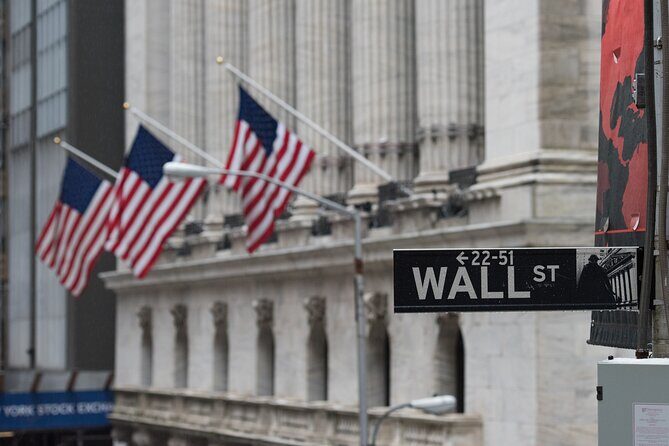
Compared to generic city tours, this private experience digs deep into less visible stories of New York. You’ll visit sites that most visitors overlook or don’t realize are steeped in Black history, such as the African Burial Ground and the early Black settlements. The guide’s insider knowledge means you’ll hear stories that aren’t found in guidebooks, providing a richer understanding of how Black lives shaped NYC’s past and present.
The private format ensures a personalized experience, with ample opportunity for questions, clarifications, and tailored recommendations. The tour’s duration (around 4 hours) strikes a good balance—long enough to cover significant sites without feeling rushed.
At $250 per person, it might seem costly, but considering the exclusive nature, expert guidance, and access to historically significant sites, many will find it offers good value—especially if you’re keen on meaningful, authentic history rather than surface-level sightseeing.
While the tour covers a lot of ground, public transportation to the starting point isn’t included, so plan accordingly. The tour is designed for those with moderate physical activity, as you’ll be walking through historic neighborhoods. Comfortable shoes are recommended, and since it’s a private tour, you can discuss specific interests or concerns directly with your guide.

This tour is ideal for history buffs, cultural explorers, students, or anyone interested in African American history and NYC’s diverse roots. Travelers eager to understand the hidden stories behind famous landmarks will find this enriching. It’s also a great option for those who prefer a more intimate, flexible, and educational experience over large group tours.
If you’re seeking a tour that connects past and present with depth and personal storytelling, this could become a highlight of your NYC trip.
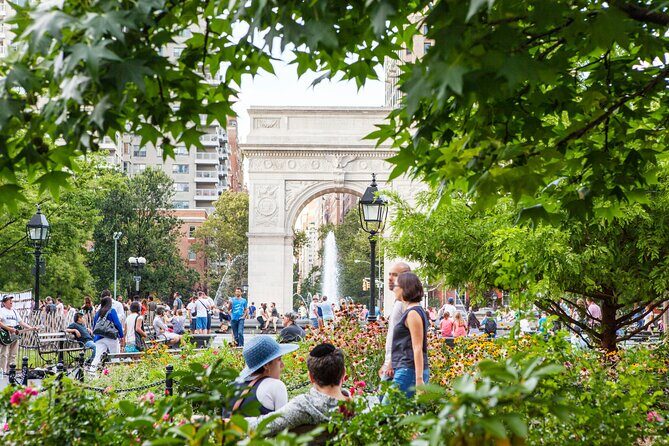
This private African American Heritage tour in downtown Manhattan offers a rare opportunity to explore underground stories and historic sites that many visitors miss. The focus on untold narratives, combined with a personable guide, makes for a genuinely impactful experience.
While the price might seem high, the depth of insight, exclusivity, and access to significant sites make it a worthwhile investment for those truly interested in understanding NYC’s diverse history. It’s perfect for curious travelers who value authentic stories and are willing to walk through history’s complicated layers with a knowledgeable guide.
Overall, it’s a tour that educates, inspires, and leaves a lasting impression—ideal for anyone wanting a more meaningful connection to the city’s past.
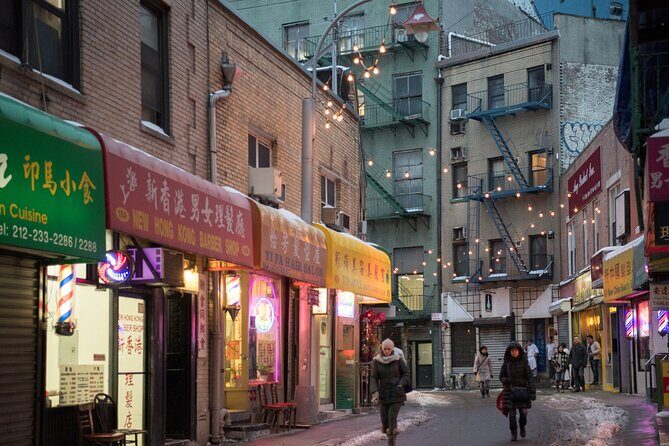
Is this tour suitable for all ages?
While generally suitable for most adults and older teens, the tour involves walking and moderate physical activity, so it’s best for those able to handle this comfortably.
Does the tour include transportation?
No, public transportation to the starting point is not included, so plan your route accordingly.
What is the group size?
It’s a private tour, so only your group will participate, allowing for a more personalized experience.
How long is the tour?
The tour lasts approximately 4 hours, which includes walking and stops at key sites.
Are tickets included for any specific landmarks?
Most stops, such as Wall Street, Trinity Church, and the African Burial Ground, have free admission. The tour is mainly informational and guided.
Can I customize the tour?
Since it’s private, you can discuss specific interests or questions directly with your guide.
Is this tour suitable for those with mobility issues?
Moderate physical activity is involved, so it’s best for travelers with a reasonable level of mobility.
What should I wear?
Comfortable walking shoes are recommended, as you’ll be on your feet for several hours.
How do I book?
Booking can be done via the Viator link, and confirmation is provided at the time of booking.
What is the cancellation policy?
You can cancel up to 24 hours in advance for a full refund, giving flexibility if your plans change.
This private African American Heritage Downtown Walking Tour offers a compelling way to deepen your understanding of New York’s diverse history. It’s perfect for those eager to explore beyond the usual sights and connect with stories that shaped the city.